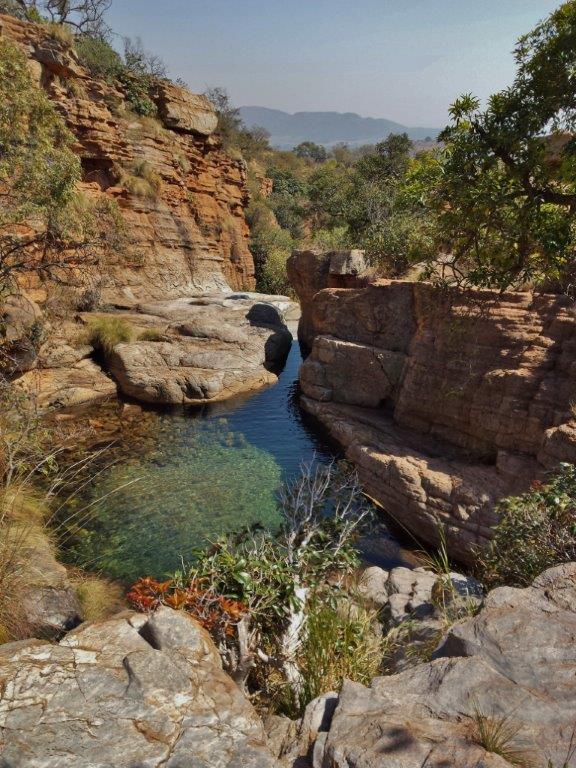Water - Amanzi
- Published:
By Frank Molteno
“Remember that water is sacred.” – Archbishop Thabo Makgoba
 Picture courtesy of Glynis Goyns
Picture courtesy of Glynis Goyns
We are water. In substantial measure we really are. Just as much as we were created from the earth, we were created from the waters of the earth. Over half of our blood is made up of water. About three-quarters of our bodies is made up of water. We are water.
Water highlights how completely we are part of the whole created order, part of the Earth’s web of life, part of the Universe’s flow. And we can no more live without water than we can live without air. Water is an absolute prerequisite to life as we know it.
However, along with our fellow creatures, we are facing life-threatening water challenges: lack of access to clean water, drought, flooding, sea level rise, lack of sanitation, pollution, habitat destruction. Most seriously affected are the poor and marginalised – especially children, older people and women as well as animals, our fellow creatures. Thus, water is not just an issue of water – it is a justice issue, a human rights issue and an issue of the rights of all creaturekind.
What has brought us, the Earth community, to where we find ourselves with an unprecedented water crisis? The answers lie in a complex of interconnected factors but none more critical than . . .
- Climate change;
- A dominant economic system that is based upon unlimited growth with its associated culture of treating water, land and all that makes up the Earth as limitless ‘resources’ that are there to use and overuse for the short-term profit and pleasure of those with the power of inequitable access to them;
- An addiction to animal-based protein and the consequent production of quantities of meat, eggs and dairy that necessitates intensive animal agribusiness (factory farming) which swallows water in volumes that cannot be sustained;
- The completely disproportionate growth of the human population.
When we respect water and keep it clean, it is a source of life, good health, happiness and general well-being. When we pollute and contaminate water with unnatural quantities of animal excrement, chemicals, industrial waste or salt, it becomes a carrier of sickness and death for us, our fellow creatures and whatever grows.
As people of faith, we have a responsibility to act for justice and against injustice, just as we have a responsibility to care for the creation of which we are a part, and all creaturekind. As water crises abound, faith communities can help. The Anglican Church has launched an initiative in the form of a website, justwater2017.org, which it is offering as an open resource to help equip community and religious leaders as advocates for water justice.
The JustWater movement is intended to grow to include other organisations that wish to participate, bringing together business, science, religion and the arts to help deepen understanding and build a shared community for action to address the water crises that abound. Our own immediate crises in Southern Africa are first and foremost crises of periodic droughts and flooding, as well as ever-present pollution and irresponsible over-consumption by the rich, by agribusiness and by industry.
To launch #JustWater17 in Southern Africa there will be a conference on Water Justice to be held at St George’s Cathedral, Cape Town, from Thursday 23 March to Saturday 25 March 2017. Cathedrals and churches on four continents are coming together to raise awareness and activism about water.
The conference at St George’s Cathedral is the South African leg of an international conference organised by Trinity Institute in New York in a partnership that includes also St Paul’s Cathedral (London), and St Paul’s Cathedral (Melbourne). If interested in attending the conference and to find out more, visit http://www.sgcathedral.co.za/ or search Facebook for @waterjusticesgcathedralcapetown.
In the meantime, while the challenges might seem overwhelming – and they are indeed daunting – they are challenges that each one of us can do something about. Some of the practical ways we can help as both faith communities and as individuals, include the following:
- Reduce our use of water (there are so many ways in which we can do this);
- Re-use water as much as possible (in other words, use our ‘grey’ water);
- Collect rain water that otherwise goes into the sewers;
- Get rid of private swimming pools and swim in the sea or public pools;
- Replace ‘alien’ plant species in gardens with indigenous, ‘water-wise’ plants;
- Minimise our use of plastics, chemicals and other pollutants that end up in rivers, oceans and aquifers;
- Modify our diet to reduce the amount of water required to produce the food we eat – achieved most dramatically by reducing the quantity of animal products we consume. In the words of Archbishop Thabo Makgoba (London, February 2017_)_, “Switching to a plant-based diet or reducing the amount of meat in your diet is one of the most important choices you can make to save water.”
Where we need to start, is by becoming more mindful and re-connecting with who we most fundamentally are. We are water. We are God’s creatures.
*Post picture from Tonko100
Who we are

SAFCEI (Southern African Faith Communities’ Environment Institute) is a multi-faith organisation committed to supporting faith leaders and their communities in Southern Africa to increase awareness, understanding and action on eco-justice, sustainable living and climate change.
Featured Articles
-

South Africa: Who Ends Up Paying If DMRE Cooks the Price of Nuclear Power?
-

South Africa’s nuclear energy expansion plans continue to draw criticism, environmental NGOs chew over legal challenge
-

Earthlife Africa and SAFCEI respond to latest unsettling nuclear news regarding the ministerial determination
-

Open Wing Alliance Africa (Virtual) Summit 2023
-

The Green Connection and SAFCEI respond to energy minister's divisive and deflecting comments
-

Job Vacancy: FLEAT Coordinator







